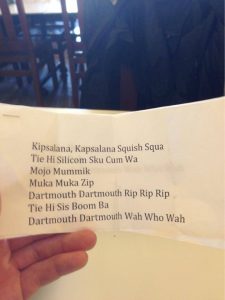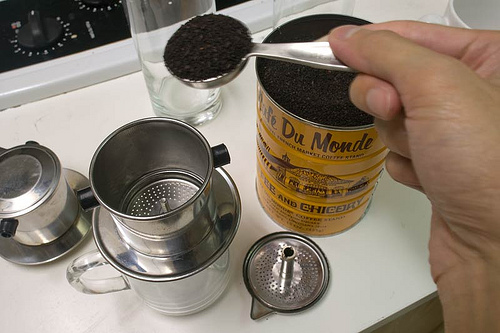Title: Weighing Saying
General Information about Item:
- Genre: Verbal
- Subgenre: Joke
- Language: English
- Country of origin: USA
Informant Data: Will Kaufman ’20 is a 19-year-old male caucasian light-weight rower from Boulder, CO. He is the middle child between two sisters. He started rowing his freshman fall upon entering Dartmouth. As a walk-on rower, he came in knowing nothing about the sport.
Contextual Data:
Social Context: Like any folk, the D150’s have a unique series of unifying experiences. One of these is racing against other school teams. This joke comes from constantly interacting and listening to the D150 coach. Since every member of the D150 team is at practice, they all come into contact with the same coach very frequently. As such, they have come up with a collective joke that mimics one of his common sayings.
Cultural Context: This joke comes from everyone on the D150 team constantly hearing the same advice over and over again. Because the coach is a constant figure that last for more than a couple years, he outlasts multiple generations of rowers and allows for this joke to continue. In addition, all the rowers in this folk group seem to understand the humor and therefore make it much more likely that the joke will continue on.
Item: This item is a verbal piece of folklore, specifically a joke. It relies on the fact that everyone interacts with the same person (the coach) on a very frequent basis. The coach’s long tenure as well as the constant mimicry by both new and experienced rowers allows for this joke to continue past generations.
Associated media:
Transcript (11:27 – 12:33):
WK: “So there’s one just with respect to weighing in. It’s, uh, ‘You can’t win a race on a scale but you sure as hell can lose one.’ Uh, that’s just something our coach says basically any time we could possibly step on the scale, um, with respect to racing.”
BC: “Right.”
WK: “… and it’s true. Um, because, we’re light-weight rowers and so there is some weight specification, and if we miss that then we can’t row, and it’s basically the idea that like, you should focus on weighing in effectively but that isn’t the race itself. It’s basically just like punching a ticket to be able to race.”
BC: “Right.”
WK: “So it’s just the first step in that process.”
BC: “So for a slogan like that, do you guys, like, say it to each other also or is it just like something that the coach says?”
WK: “It’s mostly the things that coach says, but then, just to kinda like, have some levity during the spring season, which is kinda hard to come by, a lot of times people will just repeat that line, um…”
BC: “Like a joke?”
WK: “Yeah, and I mean it’s true but it’s definitely a joke on the team. So people will say that just to kinda, I don’t know, mock the coach a bit but also to lighten up the mood.”
Collector’s Comments:
- This internal joke is interesting because it shows that not all folklore is dependent on serious topics like motivation or competition. In this case, this small joke is understood only by light-weight rowers and dependent on their collective interactions with their coach. New rowers who are incorporated, like in the three stages of liminality, learn to recognize this joke after they have spent some time with the team at practices, and it helps bridge the gap between first joining and really becoming a part of the team.
Collector’s Name: Brian Chekal




